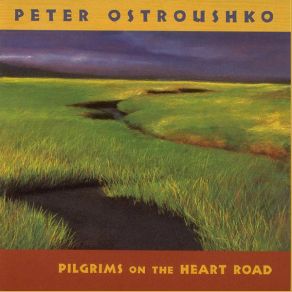Pilgrims On the Heart Road
Download links and information about Pilgrims On the Heart Road by Peter Ostroushko. This album was released in 1996 and it belongs to World Music, Songwriter/Lyricist, Contemporary Folk genres. It contains 10 tracks with total duration of 01:12:09 minutes.

|
|
|---|---|
| Artist: | Peter Ostroushko |
| Release date: | 1996 |
| Genre: | World Music, Songwriter/Lyricist, Contemporary Folk |
| Tracks: | 10 |
| Duration: | 01:12:09 |
| Buy it NOW at: | |
| Buy on iTunes $9.90 | |
Tracks
[Edit]| No. | Title | Length |
|---|---|---|
| 1. | Miracle | 6:53 |
| 2. | Mandela | 8:36 |
| 3. | Twilight of Our Years | 6:02 |
| 4. | My People | 6:10 |
| 5. | Down On the Plain of Reeds | 9:32 |
| 6. | Once Again | 6:32 |
| 7. | I'm So Glad You Came Into My Life | 7:25 |
| 8. | You Don't Know What Lonely Is | 6:52 |
| 9. | Baby, Bring Your Sweet Lovin' to Me | 6:46 |
| 10. | Like Memories Often Do | 7:21 |
Details
[Edit]Something of a surprise to those who know him from his previous instrumental album, 1995's Heart of the Heartland, Peter Ostroushko's Pilgrims of the Heart Road, which he describes as a companion piece to its predecessor, is actually a collection of songs with vocals, songs that treat a number of personal and political issues of obvious importance to the musician and which he treats at length. Containing only ten tracks, the album manages to stretch out to a CD-filling 72-plus minutes; no song is shorter than six minutes. In part, this is because Ostroushko is as determined to display his instrumental dexterity on guitar and mandolin as he is to explore the lyrical subject matter. Not pulling his punches, he begins the disc with "Miracle," a song celebrating unexpected good political events around the world and calling for more. Singing over a guitar riff borrowed from Cream's "Badge," he declares, "Look to the West, look to the East/Look into the heart of the fascist beast/Pray that their senseless wars will cease/So people again might live in peace." This is followed by "Mandela," a tribute to the South African leader in the form of an examination of his typical day in prison, beginning and ending with servings of gruel. Ostroushko largely turns away from world politics after these songs, although he manages to chide "My People" for their affection for Republican presidents in an otherwise amusing paean to his potato-picking Ukrainian relatives set to a Dixieland arrangement. He devotes love songs to his wife and adopted child, and reflects on childhood sexual abuse in "You Don't Know What Lonely Is," commenting in the liner notes that he has "empirical knowledge" of the subject. All of this makes for an ambitious, seriously intended album that sometimes comes off as preachy and self-important, sincere as it may be.